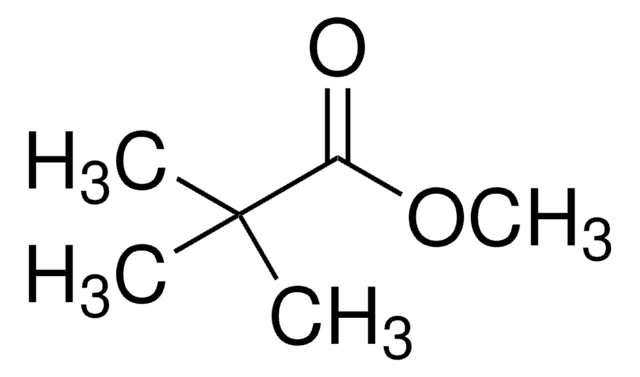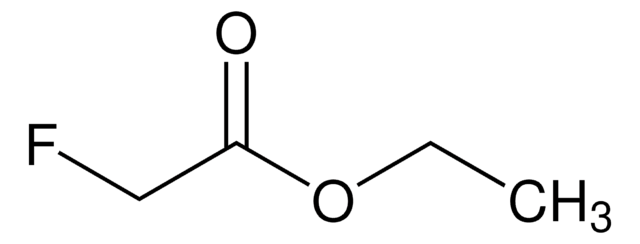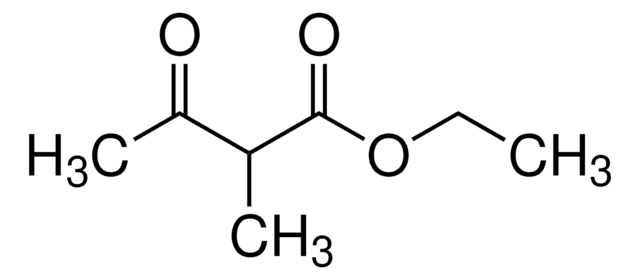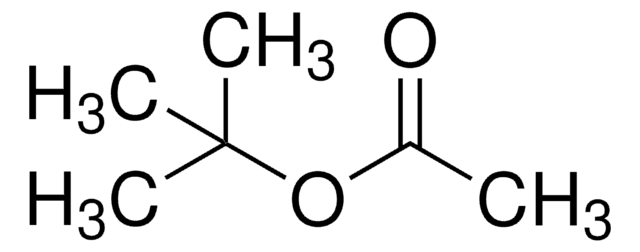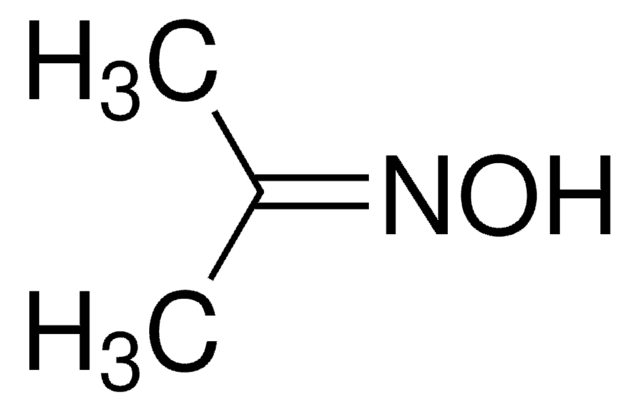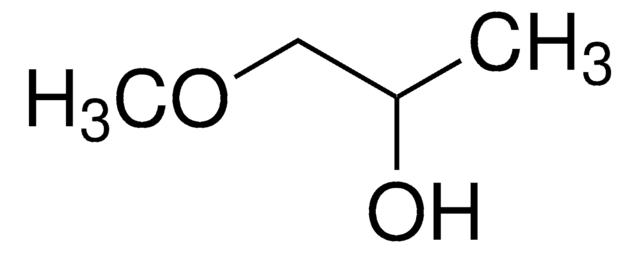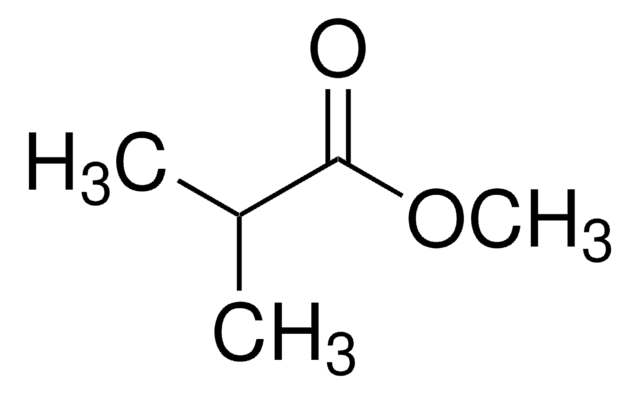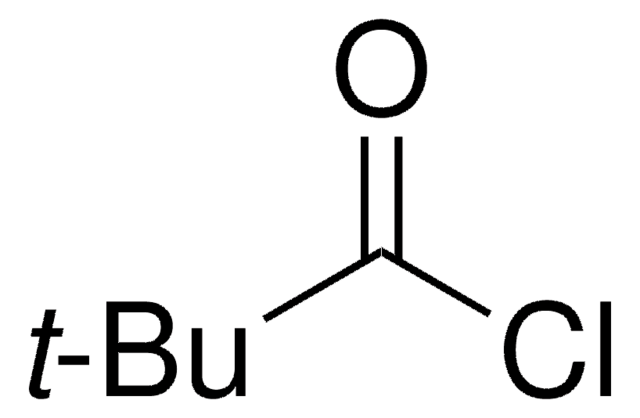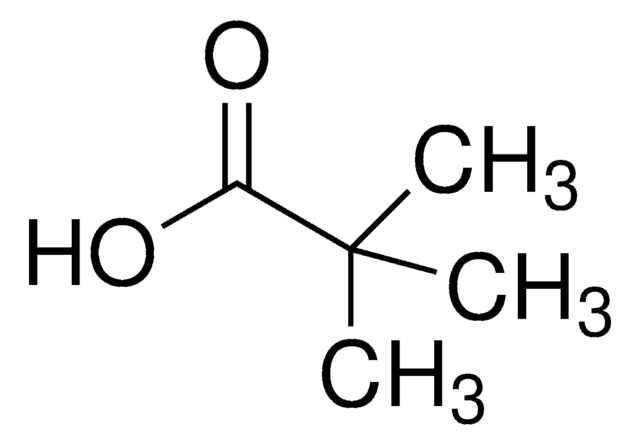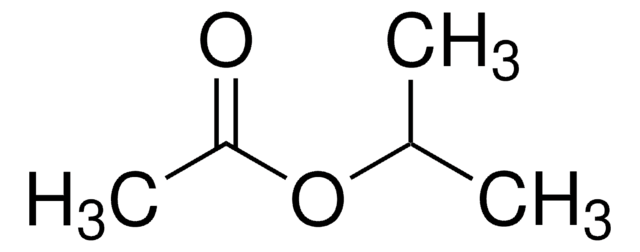234559
Ethyl trimethylacetate
99%
Synonym(s):
Ethyl pivalate, Ethyl 2,2-dimethylpropionate
Sign Into View Organizational & Contract Pricing
All Photos(1)
About This Item
Linear Formula:
(CH3)3CCOOC2H5
CAS Number:
Molecular Weight:
130.18
Beilstein:
1747617
EC Number:
MDL number:
UNSPSC Code:
12352100
PubChem Substance ID:
NACRES:
NA.22
Recommended Products
Quality Level
Assay
99%
refractive index
n20/D 1.391 (lit.)
bp
118 °C (lit.)
density
0.856 g/mL at 25 °C (lit.)
SMILES string
CCOC(=O)C(C)(C)C
InChI
1S/C7H14O2/c1-5-9-6(8)7(2,3)4/h5H2,1-4H3
InChI key
HHEIMYAXCOIQCJ-UHFFFAOYSA-N
Looking for similar products? Visit Product Comparison Guide
Related Categories
General description
Ethyl trimethylacetate undergoes condensation with acetophenone catalyzed by phosphazene base to yield β-trimethylsilyloxy ester. NCI(F−) and NCI(NH2−) mass spectra of a series of ethyl trimethylacetates have been studied.
Signal Word
Danger
Hazard Statements
Precautionary Statements
Hazard Classifications
Flam. Liq. 2
Storage Class Code
3 - Flammable liquids
WGK
WGK 3
Flash Point(F)
59.0 °F - closed cup
Flash Point(C)
15 °C - closed cup
Personal Protective Equipment
dust mask type N95 (US), Eyeshields, Gloves
Choose from one of the most recent versions:
Already Own This Product?
Find documentation for the products that you have recently purchased in the Document Library.
Customers Also Viewed
Fragmentation reactions of some aliphatic esters in the NCl (F-) and NCl (NH2-) mass spectra.
Grutzmacher HF and Grotemeyer B.
Org. Mass Spectrom., 19(3), 135-142 (1984)
Koji Kobayashi et al.
Chemical communications (Cambridge, England), (29)(29), 3128-3130 (2006-07-21)
The t-Bu-P4 base was found to be an excellent catalyst for the condensation of trimethylsilylacetate or trimethylacetonitrile with carbonyl compounds to form functionalized alkenes and beta-enaminoesters were also synthesized by the condensation with formanilides.
E Akaho et al.
Journal of pharmaceutical sciences, 70(11), 1225-1228 (1981-11-01)
Interactions of phenolic compounds 4-hexylresorcinol and 3,4-dimethylphenol with esters were studied using hexane-ester cosolvent systems by both phase solubility and partitioning methods. The data obtained by the phase solubility method were variable and could not be analyzed by any mathematical
Yulia Kaluzhny et al.
Alternatives to laboratory animals : ATLA, 43(2), 101-127 (2015-05-23)
The 7th Amendment to the EU Cosmetics Directive and the EU REACH Regulation have reinforced the need for in vitro ocular test methods. Validated in vitro ocular toxicity tests that can predict the human response to chemicals, cosmetics and other
Our team of scientists has experience in all areas of research including Life Science, Material Science, Chemical Synthesis, Chromatography, Analytical and many others.
Contact Technical Service